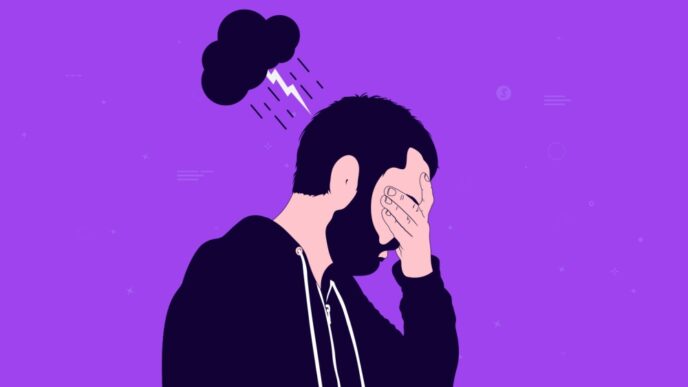Can hypnotherapy really help with stress, anxiety, or even breaking bad habits? Certified therapist Chin Soon Lee shares how this often-misunderstood practice taps into the subconscious to support mental wellness — and why it is not mind control or a magic trick from TV.
WORDS LIM TECK CHOON
 FEATURED EXPERT FEATURED EXPERTCHIN SOON LEE Certified and Registered Clinical Hypnotherapist Mind Your Health Website | Facebook | Instagram |
When people hear the word “hypnosis,” they often imagine swinging pocket watches and mind control.
However, according to certified therapist Chin Soon Lee, hypnotherapy is nothing like what Hollywood has sold us.
In fact, it is a science-backed, client-centred therapy that works with the subconscious mind to support emotional well-being.
WHAT IS HYPNOTHERAPY?
“Hypnotherapy is a collaborative process,” Soon Lee explains.
- “It involves a trained hypnotherapist guiding someone into a state of focused attention and deep relaxation,”, she adds.
- In this state, the person becomes more open to addressing unhelpful thought patterns, behaviours, and emotions, essentially unlocking their inner potential for healing and growth.
This is not about being unconscious or out of control.
“You remain fully aware,” Soon Lee tells us. “You can reject any suggestions you are uncomfortable with.”
WHAT CAN YOU EXPECT DURING A HYPNOTHERAPY SESSION?
A typical session begins with an assessment.
- The therapist gathers information about the person’s background, current challenges, and goals.
- Then, a personalized hypnosis session is conducted based on that individual’s needs.
- Some therapists also provide take-home resources, like self-hypnosis audio or simple mental exercises, to help reinforce progress between sessions.
Clients often describe feeling calmer and more grounded after a session.
“They feel uplifted, lighter,” Soon Lee notes. “It is not magic, but it is powerful.”
MENTAL HEALTH SUPPORT THROUGH HYPNOTHERAPY
Soon Lee explains that hypnotherapy supports mental wellness by helping people access their inner strengths — strengths that are already there, just buried under stress or trauma.
“It is about shifting focus from what is wrong to what is right,” she says. “When someone reconnects with the healthiest parts of themselves, healing can begin.”
She has used hypnotherapy to support clients with anxiety, stress, insomnia, trauma, and even phobias or smoking cessation.
“I structure sessions to help clients recall past memories associated with positive emotions like calmness,” she explains. “This helps anchor them emotionally and mentally.”
Beyond Anxiety: Habit Change and Motivation
Because hypnosis heightens focus, it can also support habit change, build confidence, and improve motivation.
“When you focus on something, you amplify it,” says Soon Lee.
Hypnotherapy simply guides that focus in a helpful direction. It is not meant to replace other wellness tools either.
In fact, Soon Lee encourages people to build a “resilience toolbox” by combining hypnotherapy with practices like meditation, yoga, or grounding exercises.
Results May Vary From Person to Person
“What matters more is an individualized approach, where their specific issues are considered,” she says. “Moreover, with practice, entering a hypnotic state becomes easier and more natural.” |
NO, IT IS NOT MIND CONTROL!
One of the biggest myths is that hypnosis puts you under someone else’s control.
“That is just not true,” Soon Lee says. “Hypnosis is safe when practiced ethically. You are always in control.”
However, she does caution that hypnotherapy should only be done by someone with proper training, ideally someone also qualified in mental health or healthcare.
THERE IS REAL SCIENCE BEHIND HYPNOTHERAPY
Soon Lee points to research by Dr David Spiegel from the Stanford University School of Medicine, who has shown through brain scans that hypnosis can reduce sensory distractions, improve focus, and promote positive behavioural changes — even stimulating brain plasticity.
THE HYPNOTHERAPIST’S PERSONAL EXPERIENCES
Soon Lee’s journey into hypnotherapy began with her own experience.
A pharmacist by profession, she once struggled with insomnia and anxiety. After the usual check-ups yielded no answers, she turned to hypnotherapy — and saw results.
“After my first session, I learned to relax both my mind and body far more quickly than I ever could with conscious effort,” she recalls.
The experience inspired her to train as a therapist herself.
Today, she finds deep satisfaction in seeing clients transform. “I have witnessed people overcoming trauma, anxiety, and phobias. Hypnotherapy reveals the inner strength people often forget they have. That is what makes it so powerful.”
ARE YOU CURIOUS, BUT CAUTIOUS?
To those feeling skeptical or a little uneasy, Chin Soon Lee has this advice: “Hypnosis is safe for most people, as long as it is done responsibly. Just make sure to find a properly trained and ethical practitioner. Do your research — your mind is too important to entrust to someone unqualified.”
| This article is part of our series on mental wellness. |














